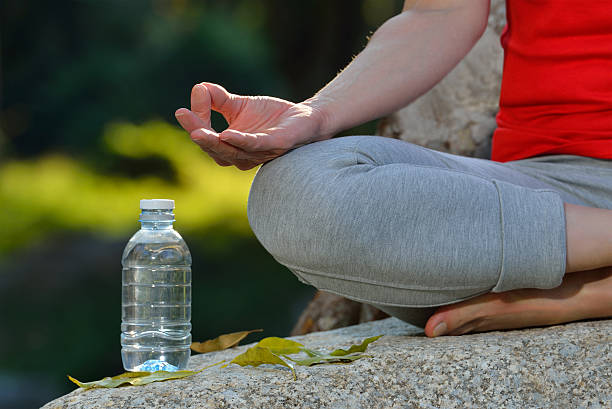Running is a popular and accessible form of exercise that not only promotes physical fitness but also offers a sense of mental clarity and accomplishment. Whether you’re a seasoned marathoner or a casual jogger, taking care of your body while running is paramount to ensure you can continue to enjoy the countless benefits it has to offer. One topic that often arises in the running community is the use of knee sleeves and their potential impact on running performance and injury prevention. Are knee sleeves good for running? The answer may surprise you. In this article, we’ll delve into the world of knee sleeves, exploring the science behind their usage, their benefits, and why they can be a valuable addition to your running gear. By the end of this discussion, you’ll have a clearer understanding of how knee sleeves can support your running journey and help you stay on track to reach your fitness goals.

The Importance of Protecting Your Knees
As runners, we put tremendous strain on our bodies, especially our knees. Each stride exerts a force equivalent to several times our body weight on these pivotal joints. Over time, this repetitive stress can lead to various knee issues, such as patellofemoral pain syndrome, runner’s knee, and even more severe conditions like ligament injuries. These problems can be not only painful but also detrimental to your running progress.
Check out our Knee Pads for Comfort and Relief
This is where knee sleeves come into play. They are designed to provide support, stability, and protection to the knee joint. Knee sleeves are typically made from neoprene or other compression materials and are engineered to fit snugly around the knee, offering a comfortable yet firm compression. The compression helps increase blood flow and reduce inflammation, which can alleviate pain and discomfort during and after runs. It’s important to note that knee sleeves are not a magical solution that will turn you into a world-class runner overnight. However, when used properly, they can contribute to your overall running experience in several ways.
Improved Joint Stability
One of the primary benefits of knee sleeves is improved joint stability. When you’re running, your knees are subjected to a range of movements, and this can sometimes lead to instability. Knee sleeves provide gentle compression and support to the knee, helping to keep it in the proper alignment throughout your run. This can reduce the risk of your knee twisting or going out of alignment, which might otherwise lead to injuries.
Enhanced Performance
While knee sleeves are not a performance-enhancing tool in the same way as specialized running shoes, they can indirectly boost your performance. By stabilizing your knees, you may find it easier to maintain proper form and posture during your run. When your body is aligned correctly, your muscles work more efficiently, allowing you to run with less effort and potentially increasing your speed and endurance. It’s important to remember that knee sleeves are not a substitute for proper training and conditioning, but they can be a valuable addition to your running arsenal.
Reduced Discomfort and Recovery Time
Runners often experience discomfort and even pain in their knees, especially during longer runs or when tackling challenging terrains. The compression provided by knee sleeves can help reduce this discomfort by increasing blood flow and decreasing swelling. Additionally, after your run, wearing knee sleeves can aid in post-run recovery by supporting your knees and reducing the strain on your joints. This can result in faster recovery times and less soreness after your training sessions.
How to Choose and Use Knee Sleeves
When considering knee sleeves for running, it’s crucial to choose the right type and size for your specific needs. Knee sleeves come in various thicknesses and lengths, so you should select the one that suits your running style and preferences. Additionally, make sure the fit is snug but not too tight, as overly tight sleeves can restrict blood flow and cause discomfort.
In conclusion, knee sleeves can indeed be beneficial for running, offering support, stability, and protection to your knees. They can help improve your joint stability, indirectly enhance your performance, reduce discomfort, and expedite your recovery. However, it’s important to remember that knee sleeves should be just one component of a comprehensive approach to running that includes proper training, conditioning, and listening to your body’s signals. When used in conjunction with these other elements, knee sleeves can become a valuable tool to help you run more comfortably and continue enjoying this rewarding form of exercise.
Incorporating Knee Sleeves into Your Running Routine
To make the most of knee sleeves for running, it’s essential to incorporate them into your training regimen effectively. Here are some practical tips on how to do so:
- Wear Knee Sleeves Consistently: Whether you’re planning a long-distance run or a shorter training session, wearing knee sleeves consistently can provide ongoing support and protection. Make it a part of your running routine, just like lacing up your running shoes.
- Start Gradually: If you’re new to using knee sleeves, introduce them gradually into your runs. Begin with shorter runs to get accustomed to the feeling and assess their impact on your performance and comfort.
- Listen to Your Body: Knee sleeves are not a one-size-fits-all solution. Pay attention to how your body responds to them. Some runners may find they benefit from wearing knee sleeves for every run, while others may only need them occasionally.
- Combine with Strength Training: Incorporating strength and flexibility exercises for your knees and surrounding muscle groups is an excellent complement to using knee sleeves. A strong and balanced lower body can provide added protection and reduce the risk of knee issues.
- Consult a Professional: If you have a history of knee injuries or chronic knee pain, it’s advisable to consult a sports medicine specialist or physical therapist. They can provide personalized advice on the use of knee sleeves and other strategies to manage and prevent knee problems.
- Check for Signs of Wear and Tear: Over time, knee sleeves can lose their effectiveness as the compression material wears out. Regularly inspect your knee sleeves for signs of wear and tear and replace them when necessary.
- Combine with Other Running Gear: Knee sleeves can be used in conjunction with other running gear, such as proper footwear, moisture-wicking clothing, and supportive accessories like compression socks or braces. This holistic approach can help you maintain your overall running health and performance.
Conclusion
In the ongoing debate over whether knee sleeves are good for running, the answer ultimately depends on your individual needs and goals. While knee sleeves are not a one-size-fits-all solution, they can be a valuable addition to your running toolkit. Their ability to enhance joint stability, boost performance, and reduce discomfort and recovery time can be a game-changer for many runners, especially those dealing with knee-related issues.
However, it’s important to remember that knee sleeves should not be seen as a cure-all, but rather as a supportive measure to enhance your running experience. Running is a highly individualized activity, and what works for one runner may not work for another. The key is to find the right balance between various elements in your training routine, including proper form, appropriate footwear, conditioning exercises, and, yes, knee sleeves.
In the end, the question of whether knee sleeves are good for running may have different answers for different runners, but they undeniably offer a tool to help you continue pursuing your running goals with greater comfort and confidence. So, if you’ve been contemplating whether to give knee sleeves a try, why not lace up your running shoes, put on those sleeves, and hit the track? You might just find that they become an essential part of your running journey.





